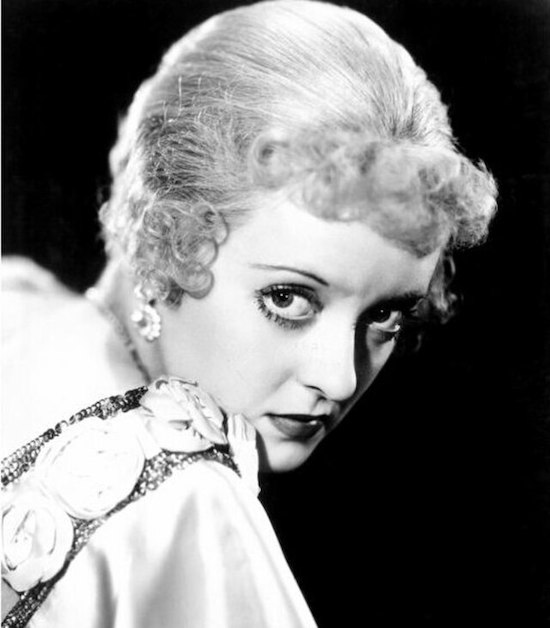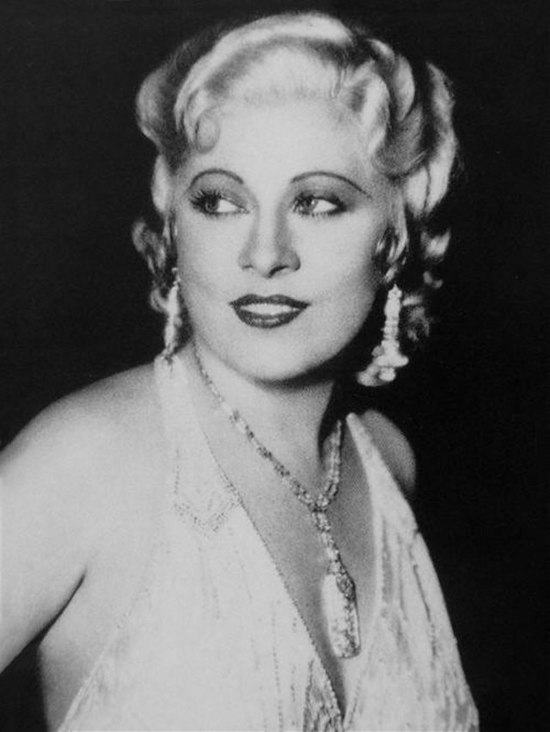Anna Bogutskaya photo by Ella Kemp
John Cromwell’s 1934 cinematic classic Of Human Bondage is often credited with two indivisible triumphs: the launch of Bette Davis’s august career and her notoriety as an unlikeable female character in film. By no means the first, Davis emerged from a lineage of unshrinking female performers that smirked in the face of sexual and moral propriety. Reflecting on her blowsy performance as the shrewish and rageous Mildred years later, Davis said “My understanding of Mildred’s vileness – not compassion but empathy – gave me pause … I was still an innocent. And yet Mildred’s machinations I miraculously understood when it came to playing her. I was often ashamed of this … I suppose no amount of rationalization can change the fact that we are all made up of good and evil.”
In her debut book, Unlikeable Female Characters, film critic Anna Bogutskaya examines the systematic frameworks that have, in equal measure profited from, celebrated and scorned the unapologetically angry, horny, ambitious and loud women of film. Honouring the nuances of womanhood, Bogutskaya delivers a sweeping and deft polemic on how the flawed women of popular culture enrich our screens and warm our hearts.
Categorising nine tropes of unlikeable femininity including the Bitch, the Trainwreck, the Slut and the Pyscho, she questions what it means to be likeable, what likeability tell us about being good and why time and time again we’re drawn back to these characters.
What does it mean to be likeable?
I think it means nothing and everything all at once. It’s such amorphous terminology, that it can be weaponized against any woman at any point. I’m talking about fictional characters and real-life people here. The rules and the goalposts keep changing in real time in fiction as they do in real life. So, some of the characters I write about from the pre-Hays Code-era we would consider to be very appropriate, very likeable now. But at the time, they were hugely controversial, and hugely out of bounds. The long tail legacy of that can be felt decades after the Hays Code went out of commission.
The reason I wrote the book is because I don’t know what it means to be likeable and because I’ve often been confronted with this question. What does it mean if you like a character, but a whole bunch of other people say that she’s unlikable? What does that say about you? Does it mean that you’re identifying or connecting with undesirable traits? It doesn’t exactly mean that someone is bad, but it’s implied that there’s something wrong with them. It’s this diffused definition that I find really troublesome.
Each of the tropes profiled in the book acknowledge women who are stepping out of these norms of moral acceptability and appropriateness. The Bitch for example, you describe as entirely self-aware and self-serving. How have responses to these kinds of attributes changed throughout history?
One of the things that I found quite interesting when researching the book was the similar patterns and variations of moral outrage, whether that be in 1933, or in 2017. If you go far back enough with someone like Mae West, it wasn’t just outrage, it was fines, and even some jail time for moral corruption.
Nowadays, actresses and screenwriters aren’t put in jail for writing sexually explicit or morally turbulent characters, but they can get their careers derailed, like what happened with Linda Fiorentino. It very quickly went from her being exalted as the next great actress, and “Why wasn’t she nominated for an Academy Award for her role in The Last Seduction?” to her being branded difficult and that performance attaching itself to her in a way that then made it almost impossible for her to have a career of any stature.

Often these characters have only been permitted to exist within a framework of morality that operates on principles of punishment, reminding us that bad actions have consequences.
I think that’s very much a direct legacy of the Hays Code which were a set of industry guidelines for motion pictures that prohibited profanity, suggestive nudity, graphic or realistic violence and sexual persuasions. There was also a direct rule that forbade sympathy for criminals. Any kind of criminal intent or action had to be punished and a big part of that was sexual ‘deviance’. Characters who transgressed either didn’t live or they were put in jail towards the end.
We see this also much later on in films from the 80s and the 90s. Fatal Attraction very notably had the ending rewritten to kill Glenn Close’s character, Alex Forrest, even though in the original short story and the original ending that had been filmed, the person who is dealing with the consequences of his actions was Michael Douglas’ character who was the actual transgressor. He was the guy who cheated on his wife, and created a whole mess, but Alex was punished as the lascivious creature.
Only in the last couple of years have we embraced the “good for her” sub-genre. So even when the character in question does terrible things or just morally questionable things, we’re still rooting for her to get away with it.
You distinguish waves of the unlikeable female character. The second marks its arrival with a weaponization of femininity and sexuality. What is the role of sexual agency in these narratives?
What I find intriguing is not just how characters are sex positive or can be presented as sex positive or sexually empowered, but how other characters react to them within the same story. I use the example of Samantha Jones from Sex and the City. It’s a show with the word sex in the title, yet the entire show was slut shaming the one sex positive character it had.

I’ll go back to the character of Bridget Gregory in The Last Seduction just because I think she’s so unique. She is not punished, she gets away with literal murder, she weaponizes her body and role as a woman and weaponizes other people’s opinions of herself out of sheer greed. I think she should be as popular as someone like Gordon Gekko from the 1987 film Wall Street, who is the male equivalent of the ultra-macho capitalist, with his motto of “greed is good”. Bridget picks up where the femme fatale left off in the 90s and she uses people for her pleasure. Her armour is so thick that slut shaming simply cannot exist in that world and does not apply to her.
Does feminism have a place within these structures?
It’s an incredibly big question, and impossible to answer. We live within patriarchal structures. The films and shows that I’m writing about are made within those structures and those are not frameworks that favour women. I find the question of is-this-feminist-or-is-it-not quite prickly because I’ve always said this with any project I’ve done, I’m not one to tell audiences or readers what is feminist or what isn’t. Some of the characters that I write about like Annie Wilkes who’s written by Stephen King, or Amy Dunne who’s written by Gillian Flynn, have both been argued as being anti-feminist characters because they do horrible things. Amy Dunne in particular is a character who is actively not feminist because she hates women. She hates everyone who isn’t herself. But the fact that she can exist, the fact that she’s authored by a female writer is a feminist act.
I think there’s a difference between characters like that and the girlboss-iffication of unlikable characters, which is a different realm. You can see it in films like Cruella, or even in the book and the show Girlboss. Those are not good characters; they’re just trying to sell catchphrases that can be used.
As one of the most populist art forms, film has a seismic influence on our interaction with the world around us. How then, does the population of unlikeable female leads in cinema affect the real social tensions and perceptions of womanhood?
Film and TV pop culture is both a mirror and an influence at the same time. The pros are that we get better stories, better characters, and more women have the opportunity to produce those stories. Characters that wouldn’t have made it past supporting or tertiary roles become the lead. This produces a shift in focus which is the subtle influence of the circular nature of pop culture. If we focus on the quality and performance of characters, when we’re thinking about our interactions with real people, we’re shifting the focus to their personal character, their qualities or whatever they have produced. The expectations are less concerned with gender.
Why do you think we seek out these types of characters?
When we look at these characters, we either hate them because we’re told to or we’re uncomfortable with them because they tap into something unspoken in us. The bubbles that we live in, sustained by social cues, rules and moral obligations are constantly telling us that we’re not enough and that there is something wrong with us because we have too much of one thing and not enough of another. I don’t believe film and TV are just there for escapism. During the research process, I found myself becoming protective of these unlikeable characters and looking more closely at the complications and nuance that was written into them. They’re so much more than villains and observing their complexity encourages us to look at that complexity within ourselves. It goes beyond simple identification. It would be practically impossible to see yourself fully represented on screen, however we can take the brushstrokes of a character and determine a permission within them to act with more honesty.
Throughout the book, you question whether a book like yours should even exist, but the unlikeable woman continues to evolve. Social media has dispersed The Trainwreck, The Crazy Woman and The Weirdo into stylistic trends such as the ‘manic pixie dream girl’, ‘goblin girl’ and the ‘frazzled English woman’. These discussions are still important. What do you want readers to take from the book?
I find these micro tropes on Tiktok and Twitter fascinating as they’re often arising from women on the internet and are then retroactively applied to fictional characters and celebrities. I think we have a tendency to classify the world around us because it makes it easier to process it. I think because these tropes usually arise from women, they can be interpreted as just women giving themselves permission to be human.
One of things I don’t want readers to think is that this is the be all and end all of how to look at these characters. There are legions of other characters from around the world I could have fit into these tropes. This book is just one way to pique curiosity about how we think about fictional women on our screens and how that relates to our thoughts about ourselves and other women in our lives too.
Unlikeable Female Characters by Anna Bogutskaya is published by Sourcebooks. Millen Brown-Ewens is an art and culture writer


